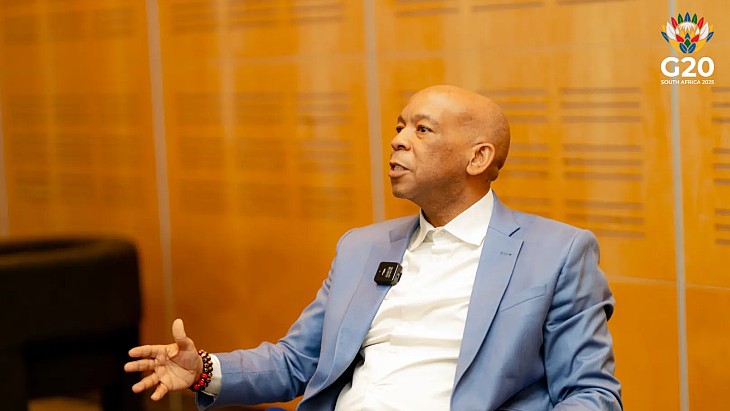In his opening remarks to the G20 Energy Transitions Working Groups Technical Teams meeting held in Cape Town, he said that the energy transition "cannot simply be about decarbonising the global economy. It must also enable nations to industrialise, create jobs and expand the reach of human development".
“For the global South, the transition must mean … moving from energy poverty to energy sovereignty.”
At a side event, focusing on nuclear energy, held on the same day Ramokgopa said: "In the wake of the world aiming to reach net-zero by 2050, there has been a return to realism where it is globally accepted that nuclear technology has a huge role to play in the energy mix as a key source to ensure countries achieve their energy security, energy sovereignty, and energy justice in the transition. The expansion of the nuclear programme gives South Africa energy security and sovereignty that enables the country to move its economy into a digital era, engage in new research frontiers and take its rightful place amongst leading nations."
The G20 includes the world's largest economies - together accounting for 85% of global GDP - with its member states meeting annually to discuss economic, political and social initiatives with the aim of bolstering international economic cooperation. This is the first time an African nation has held the presidency.
Last year, under the presidency of Brazil, the International Atomic Energy Agency (IAEA) made its first-of-a-kind contribution to the G20 policymaking process about nuclear energy. And the IAEA is collaborating with South Africa's G20 presidency again this year, with specific publications planned on the prospects for nuclear power in Africa and the repurposing of coal-fired power plants with small modular reactors.
IAEA Director General Rafael Mariano Grossi said: "At a time when energy access and security of supply are issues of global concern, the role of nuclear energy in low carbon, resilient and affordable energy systems remains indispensable."
During this week's side event - which was co-hosted by the IAEA - Alberto Pela, Head of Delegation and Senior Advisor on International activities at the Department of Energy of the Ministry of Environment and Energy Security of Italy, said: "Italy is working to relaunch the use of sustainable nuclear energy, in its net-zero emissions path by 2050 ... our government is strongly committed to work on enabling a favourable legislative and regulatory framework aimed at promoting the use of safe and innovative nuclear at the national level, including small modular reactors and Generation IV advanced modular reactors."
And Nawal Yousif Alhanaee, Director of the Future Energy Department at the UAE’s Ministry of Energy and Infrastructure, said: "In the UAE, nuclear energy is more than a power source - it's a cornerstone of our clean, safe, and sustainable energy future ... we affirm our commitment to a carbon-free tomorrow powered by peaceful and reliable nuclear technology."
The IAEA also said it would be participating in the G20 Ministerial Meeting on Energy, due to take place from 23-26 September.
South Africa currently has two nuclear reactors - at the Koeberg nuclear power plant - generating about 5% of its electricity. The country has had plans to expand its nuclear power capacity, both by reviving its Pebble Bed Modular Reactor programme and also with a procurement process for 2.5 GW of new nuclear capacity which is currently being consulted on.
Article researched and written by WNN's Alex Hunt















